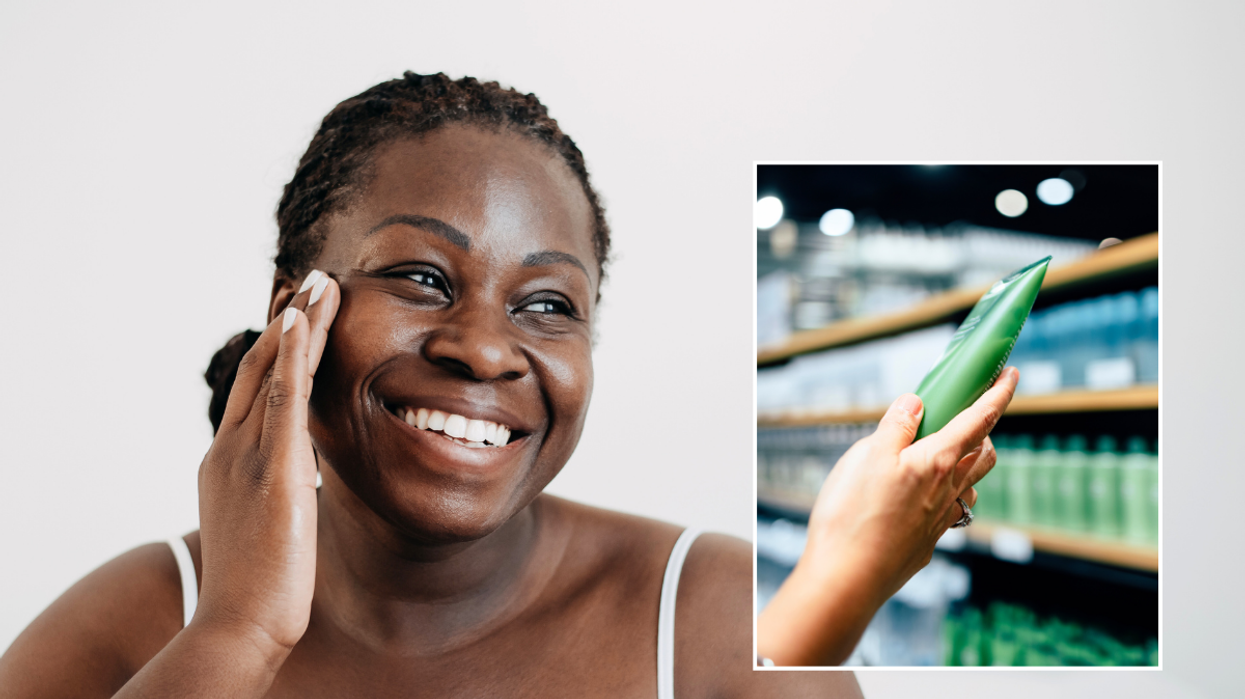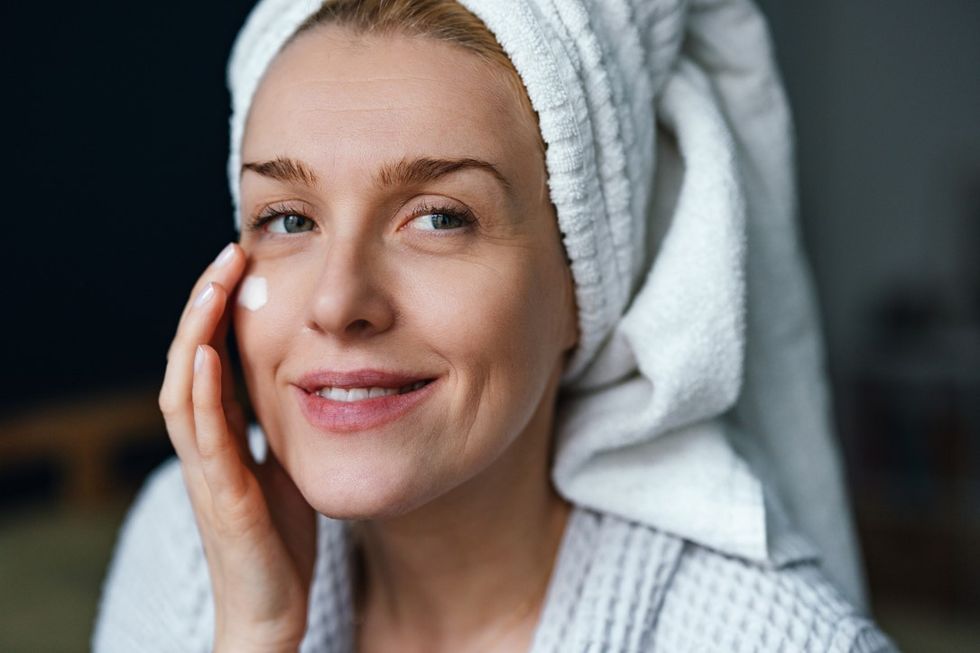How to 'reduce wrinkles' and 'keep the skin plump' as your skin changes over the years

Skin needs change over the years
|GETTY

Our skin changes as we age but there are some ways to keep it healthy no matter how old you are, an expert has exclusively told GB News
Don't Miss
Most Read
The skin constantly changes and how you look after it in your 20s will differ from what it needs in your 50s.
Luckily, founder of CellDerma skin care Dr Dev Patel has shared how to "reduce wrinkles" and maintain a youthful appearance over the years.
Decreased cell turnover
Dr Patel said: "Cell turnover is when old or damaged skin cells are shed and replaced by new, healthy ones. This natural process is essential for maintaining a bright and youthful complexion.
"However, as we age, cell turnover slows down to approximately four to six weeks, instead of two to four weeks. This means dead skin cells can pile up on the surface, making the skin appear dull and rough.

Britons can look out for certain skin care ingredients to 'reduce wrinkles'
|GETTY
"To mitigate these effects, incorporate retinoids into your skin care routine to speed up cell turnover. New generation retinoids such as hydroxypinacolone retinoate (HCP) have been developed to offer the benefits of retinol, without the expected side effects such as skin irritation, increased sensitivity, dryness, and flaking.
"HCP has a higher potency to reduce wrinkles, and when combined with powerful antioxidants Vitamin C and E, it can further help cell repair."
Loss of collagen and elasticity
The CellDerma expert said: "As we age, the skin decreases in collagen and elastin production, which are essential for keeping the skin looking plump and youthful.
"Collagen is the most abundant protein in the body, helping provide support to your skin, hair, nails, and joints.
"Unfortunately, collagen levels decline naturally from our mid 20s onwards, which translates to thinner skin and the formation of fine lines. While collagen provides the base, elastin gives your skin resilience. Without enough elastin, the skin loses its bounce and begins to sag over time.
"To address prominent signs of ageing, I would recommend a Collagen Restore cream with messenger peptides for collagen stimulation, and neuro-peptides which target muscles of facial expression.
"The effect is strong enough to slow down formation of expression lines and soften existing wrinkles, however, not capable of negatively impacting on expression, like anti-wrinkle injections can (when done badly). As well as this, look for ingredients such as hyaluronic acid and squalene to help hydrate and plump the skin."
Results of lifestyle choices
They added: "While genes play a role in how gracefully we age, the good news is that we have more control than we think.
"Our daily choices, from what we eat to how we sleep, can significantly impact how our skin ages. Unhealthy habits such as smoking, poor diet and excessive alcohol consumption can cause premature ageing as it hinders our skin’s ability to repair and renew.
"As well as this, a lack of sleep often results in dark circles, fine lines, and dull complexions.
"This is because adequate sleep is essential for all cellular functions so poor sleep means more collagen degradation and generally unhealthier skin. Understanding the repercussions of these lifestyle choices can help you make informed decisions to prioritise skin health."
LATEST DEVELOPMENTS

Dr Dev Patel shared advice on looking after the skin
|Dr Dev Patel
Inflammation
The doctor advised: "Skin inflammation has many possible causes including infections, allergens, stress, photosensitivity, and autoimmune conditions.
"Symptoms can include rash, itching, redness, swelling or blistering. As well as this, long-term inflammation activates enzymes that degrade collagen and elastin. As these structural elements break down, the skin becomes more prone to fine lines and wrinkles.
"Inflammation also generates free radicals, highly reactive molecules that can damage skin cells and contribute to premature ageing. Free radicals can also accelerate the breakdown of collagen and disrupt the skin's natural repair.
"Over time, this can result in the visible signs of ageing, including dull skin, sagging skin and an uneven skin tone. If you are prone to inflammation in the skin, looking for skin care products with anti-inflammatory ingredients such as active vitamin C compounds (rather than L-ascorbic acid which can be irritating) based in a sodium hyaluronate medium.
"This is the most soluble form of hyaluronic acid and offers good hydration for the skin, as well as enhancing the penetration of vitamin C. Steer clear of harsh chemicals, fragrances, and excessive sun exposure, which can aggravate inflammation."










